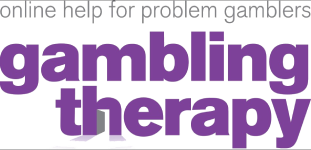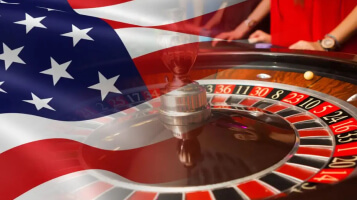Certainly, gambling can be fun and considered entertainment when played responsibly. However, some people may have realized that gambling and taking risks have started to negatively affect them. This always indicates a need to stop gambling and to help gamblers correct their mistakes, as well as to recognize the signs of gambling-related problems. While none of these methods are perfect, self-exclusion is an effective preventive tool that allows individuals to avoid gambling and take time to reflect, ultimately helping them regain control of their actions. This article will explore the process of self-exclusion tools, how they are managed, and the available resources to assist you or a friend in controlling gambling.
What is Self-Exclusion?
Self-exclusion is a temporary measure that the player voluntarily imposes on himself or herself if he/she finds gambling often leads him/her to the brink of losing his/her sanity. Usually, self-exclusion would be done in one or many ways, with logging out of the site for good, often referred to as cold turkey self-exclusion. Self-exclusion can be temporary or permanent according to the needs of the player. Self-exclusion in any form may include limiting access from:

Online Self-Exclusion
This may include various types of self-exclusion from gambling websites for a predetermined time, running from a day to a few months even until a couple of years-the number of days being counted forward. Many online regulated gambling sites do have such facilities in their account settings.

Offline Self-Exclusion
Casinos and other such gambling centers often house self-exemption programs that as a corollary prohibit people from visiting their premises.

State-Or Nation-Wide Programs
Many countries or states have broader methods of self-exception that include various gambling venues both in real life and on the Internet.
Using Self-Exclusion Tools
Self-exclusion tools are straightforward systems that are easy to use. When someone decides they need to be banned from gambling, they fill out forms with basic information. This includes the period during which they want to be excluded—the simplest detail—and sometimes a reason is required. This data is then used by the gambling operator to carry out the exclusion.
The person is prohibited from using all gambling services, whether online or offline, during the exclusion period. Some programs suggest a cooling-off period before the exclusion takes effect, allowing the person to reconsider the decision.
Crucially, these tools of self-exclusion did not consist simply in blocking access to something; on the contrary, they were about prompting and supporting inward decisions and self-reflection and also encouraging healthier decision-making behaviors by the individual.
The Benefits of Implementing Self-Exclusion Tools
Self-exclusion tools undoubtedly carry great benefits and contribute to a remedy for gambling addictions like this:
- Possession of mental health: The absence of a gambling environment can reduce the negative emotions or variables due to impulsive gambling.
- Financial assurance: Saving of someone from spending beyond the necessary money that cannot be lost. Indeed, this is financial protection from destructive gambling habits.
- Time to recover: It enables a person to provide themself the liberty from gambling for focusing on recovery and taking professional help and sharing treatment with friends and family.
- Accountability: This is one of the main things that self-exclusion schemes tend to help someone admit that they indeed do have a gambling problem and consequently have to accept and embrace actions. The development and motivation for constructive lifelong modifications can be brought about.
Types of Self-Exclusion Programs
Individual organizations or gambling operators maybe offering self-exclusion programs to meet individual demands and types of the gambler. Listing below these as one of the most popular:

GamStop (UK)
GamStop is a national self-exclusion program in the UK where people allowed themselves to stop utilizing all the online gaming websites that come under the UK Gambling Commission. They can exclude their selves for longer periods from six months to up to five years.

GamCare (UK)
The facility of self-exclusion comes with GamCare that constitutes many other services as help towards people through hotlines and chat for support online. They have made several options available for their customers: Long term self-exclusion or short-term exclusion.

National Council on Problem Gambling (NCPG, USA)
This institute shelters the National Problem Gambling Helpline and also has self-exclusion solutions within the United States. It also has some online tools for exclusion on gambling websites. Each state has its personal approach as well as programs.

Self Exclusion Programs in Las Vegas (USA)
The Nevada Gaming Control Board exclusion program in Las Vegas or Nevada ensures residents’ self-exclusion from casinos. Though specific to land-based casinos, the exclusion of people who have gambling problems becomes from the casino floor a reality.

Gambling Therapy (International)
Global customers may access self-exclusion services and support at Gambling Therapy, which specializes in struggling gambling addicts. Also wanted to know that the website offers tools for online self-exclusion on various websites.
How to Use Self-Exclusion Tools Effectively
Self-exclusion tools work best when part of a support system. The first step in recovery is acknowledging gambling issues and understanding the consequences. Once aware of the problem, selecting the right program—whether temporary or long-term—is essential. Self-exclusion is more effective with professional counseling, support groups, or therapy, so reaching out to organizations like GamCare or NCPG can be beneficial. It’s important to stick with the plan and not attempt to “beat the system,” as doing so undermines the effectiveness of self-exclusion and progress in managing gambling habits.
Empowering Yourself Through Self-Exclusion
Self-exclusion will be a meaningful and significant process that people can come into terms with and terminate their gambling behaviors gravely and uproot potential danger. However, more importantly, these tools must be part of a more comprehensive recovery program that includes support, self-reflection, and professional help. With the right tools and resources, individuals will have their lives in control and mostly be engaged in a positive fashion toward healing.
Read Articles

The Legal Status of Gambling in the U.S. by States
Gambling laws across the U.S. continue to evolve, with each of the 50 states having full authority to regulate its own gambling activities. This has resulted in a patchwork of restrictive rules and regulations. While most states now have a more open attitude toward gambling, meaning the sale, consumption, and promotion of cannabis and pot are now legal, other areas remain heavily restricted, either limiting certain forms of gambling or banning them altogether.
Read More
Political Agendas Shaping Gambling Laws in the U.S.
The acknowledgement of gambling in the United States has been long discussed and highly confrontational because of those involved. Something that once seemed an absolutely strict business has a detailed, per state legal framework attending to its growth. Besides official and economic concerns, systematic formation is not only essential to the processes of the legalizing of gambling. In the U.S., gambling legalization is deeply interwoven with political agendas, historical contexts, and divides over ideologies.
Read More